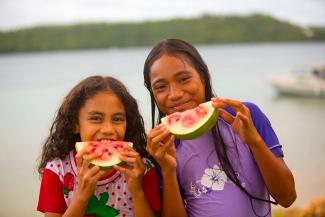
I recently attended a meeting of an international expert group convened by WHO in Geneva to assess progress being made by the global community in taking actions to reduce the impact of NCDs following high level meetings sponsored by the UN General Assembly in 2014 and 2011. These discussions are taking place in anticipation of the third high-level meeting at UNGA in 2018.
The impetus is accelerated by the planned meeting to be held in Montevideo, Uruguay on enhancing policy coherence to prevent and control NCDs to be hosted by the President of Uruguay.
SDG 3.4 states that “By 2030, reduce by one third premature mortality from non-communicable diseases through prevention and treatment and promote mental health and well-being”.
It is generally recognised that ‘progress in the prevention and control of NCDs is insufficient and uneven’ due in part to their complexity and challenging nature. Globally, premature mortality from heart disease, cancer, diabetes and chronic lung disease declined by 17% between 2000 and 2015. In developing countries, there has been little or no decline.
Commitments made in 2011 and 2014 at the UN High Level Meeting remain largely unmet and that there are major constraints that impede further progress. The key constraints are;
- Variability in political commitment and failure to take action on global and regional declarations
- Unmet needs and demands for technical assistance by member states
- Weak health systems
- Inadequate financing
- Significant commercial determinants
- Cumbersome and demanding monitoring frameworks
For the Pacific nations, the region is leading the world in many respects. The key policy instrument guiding actions by the small island states is the Pacific NCD Roadmap. It was developed by SPC, WHO, World Bank, DFAT and MFAT and approved by Ministers of Health and Ministers of Finance in 2014. The Roadmap includes key interventions that are proven to be effective in preventing and controlling NCDs, including;
- Strengthening tobacco control, including raising the excise duty to 70% of the retail price of cigarettes.
- Reducing consumption of food and drink directly linked to obesity, heart disease and diabetes such as sugar-sweetened drinks, salty and fatty food.
- Improving the efficiency and impact of the health sector for prevention and early treatment.
- Strengthening monitoring and evaluation around activities.
Effective implementation of the recommendations in this roadmap is the most likely way of 'bending' the cost curve for NCD treatments. The strategies put forward in the Roadmap are achievable and affordable but will take determination and leadership.
All Pacific Island nations have now raised tax on tobacco and many have also implemented tax on soft drinks and unhealthy food items.
Some early success is now apparent including a decline in smoking in Samoa.
Pacific Health Ministers will meet again in Rarotonga in August 2017. A review of NCD activities will be an important item on the agenda.
The Pacific is leading the way in some areas of prevention and control of NCDs.
